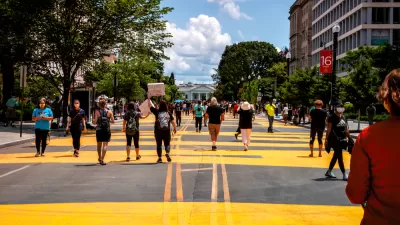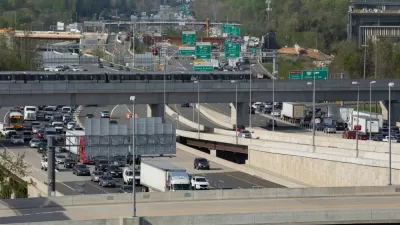A Washington D.C. project to clean up and repair dilapidated buildings in the city is coming under scrutiny for shoddy work and millions of dollars in public money that are virtually unaccounted for.
"The project was among hundreds of repair jobs subsidized in recent years by a $30 million fund established to rid the District of dangerous, dilapidated properties."
"As tenants across the city complain of squalid conditions, the DCRA is struggling to account for the millions it has spent."
"Records show the agency has repeatedly directed jobs to small home-improvement contractors without business licenses, in some cases for costly projects at empty buildings. Years later, haphazard oversight and record-keeping at the DCRA make it difficult to track what projects were ordered, whether the city paid a fair price, or how much work was done."
"The fund is a crucial piece of the city's efforts to protect renters in rotting buildings. Because of a thriving real estate market, landlords in the past four years emptied hundreds of rent-controlled apartments, then made millions of dollars by converting the apartments to condominiums. Some landlords forced renters out by refusing to make repairs; city inspectors have chronicled more than 3,000 housing-code violations, including leaks, broken stoves and toilets, cracked walls and no electricity, at newly vacant buildings."
FULL STORY: Little to Show for the Price

Planetizen Federal Action Tracker
A weekly monitor of how Trump’s orders and actions are impacting planners and planning in America.

Map: Where Senate Republicans Want to Sell Your Public Lands
For public land advocates, the Senate Republicans’ proposal to sell millions of acres of public land in the West is “the biggest fight of their careers.”

Restaurant Patios Were a Pandemic Win — Why Were They so Hard to Keep?
Social distancing requirements and changes in travel patterns prompted cities to pilot new uses for street and sidewalk space. Then it got complicated.

DC Area County Eliminates Bus Fares
Montgomery County joins a growing trend of making transit free.

Platform Pilsner: Vancouver Transit Agency Releases... a Beer?
TransLink will receive a portion of every sale of the four-pack.

Toronto Weighs Cheaper Transit, Parking Hikes for Major Events
Special event rates would take effect during large festivals, sports games and concerts to ‘discourage driving, manage congestion and free up space for transit.”
Urban Design for Planners 1: Software Tools
This six-course series explores essential urban design concepts using open source software and equips planners with the tools they need to participate fully in the urban design process.
Planning for Universal Design
Learn the tools for implementing Universal Design in planning regulations.
Heyer Gruel & Associates PA
JM Goldson LLC
Custer County Colorado
City of Camden Redevelopment Agency
City of Astoria
Transportation Research & Education Center (TREC) at Portland State University
Camden Redevelopment Agency
City of Claremont
Municipality of Princeton (NJ)





























